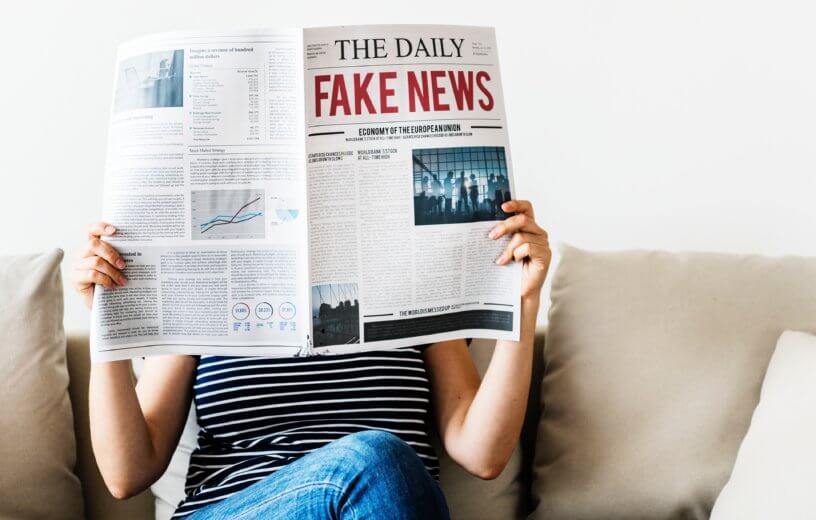CORK, Ireland — “Fake news” is a term that has been impossible to escape in the United States over the past few years. Misinformation and fabricated stories, especially those posted on social media, played a troublingly large role in the 2016 election, and unfortunately there is every indication that this trend is going to continue heading into another big election year in 2020. But, just how persuasive is fabricated news? According to a joint study conducted by both American and Irish researchers, fake news almost certainly influences voters, and can even cause many to form false memories based on fabricated news reports they’ve seen.
After analyzing voters in the week leading up to the 2018 Irish referendum on abortion, researchers say that individuals are more likely to form false memories based off of a fake news report if it aligns with their political beliefs. Furthermore, the more a topic elicits an emotional response, the more likely a person is to form false memories that support their preconceived notions. With this in mind, the study’s authors say they expect fake and fabricated news to have a similar effect on U.S. voters in 2020.
“In highly emotional, partisan political contests, such as the 2020 US Presidential election, voters may ‘remember’ entirely fabricated news stories,” explains lead author Gillian Murphy of University College Cork in a media release. “In particular, they are likely to ‘remember’ scandals that reflect poorly on the opposing candidate.”
A total of 3,140 potential Irish voters were surveyed. Each person was asked about their voting plans heading into the abortion referendum. Then, each participant was given six news reports. Two of those news stories were completely fabricated, and consisted of political figures on both sides of the abortion debate engaging in illegal or immoral behavior. After reading each of the six news stories, participants were asked if they had heard about the depicted events before, and if so, they were requested to recall specific memories.
Next, participants were told that some of the news stories they had just read were false, and were asked to identify which reports they believed to be fake. Each study subject also completed a cognitive test.
Almost half of the participants reported a memory pertaining to at least one completely fabricated news story, and many even recalled intricate details about a fake story. Interestingly, those in favor of legalized abortion were more likely to remember a false claim about anti-abortion figures, and those against legalized abortion were more likely to recall a false memory about pro-abortion political figures.
It seems that memories are a bit of a stubborn topic for many people, with many participants refusing to reconsider their memories even after being told that some of the information they just received was false. Several other participants seemed to take the false news stories and continue adding to them, recounting additional details that were never reported in the first place.
“This demonstrates the ease with which we can plant these entirely fabricated memories, despite this voter suspicion and even despite an explicit warning that they may have been shown fake news,” Murphy comments.
Those who scored lower on the cognitive test were just as likely as high scorers to recall false memories, but low scorers were more likely to remember false details that agreed with their beliefs. This suggests, according to the study’s authors, that more intelligent individuals may be more likely to question their own beliefs and preferred news sources.
Moving forward, the research team say they would like to investigate the effect fake news has had on the Brexit situation, as well as the #MeToo movement.
Fully understanding the psychological impact of fake news on voting decisions and political beliefs is an important endeavor, and a problem that isn’t going away. As technology continues to improve it’s only going to get easier to create and spread falsified videos, images, and reports.
“People will act on their fake memories, and it is often hard to convince them that fake news is fake,” says memory researcher Elizabeth Loftus, of the University of California, Irvine. “With the growing ability to make news incredibly convincing, how are we going to help people avoid being misled? It’s a problem that psychological scientists may be uniquely qualified to work on.”
The study is published in Psychological Science.

I have lots of false memories unfortunately!
This is why negative politcal ads work. The power of hyena media and socialist tech companies driving agendas, pushing innuendo, hoaxes and yes coup attempts at duly elected presidents.